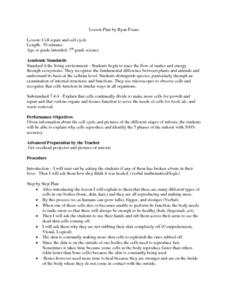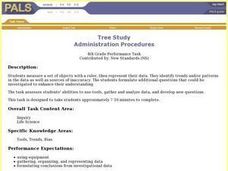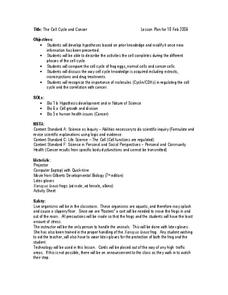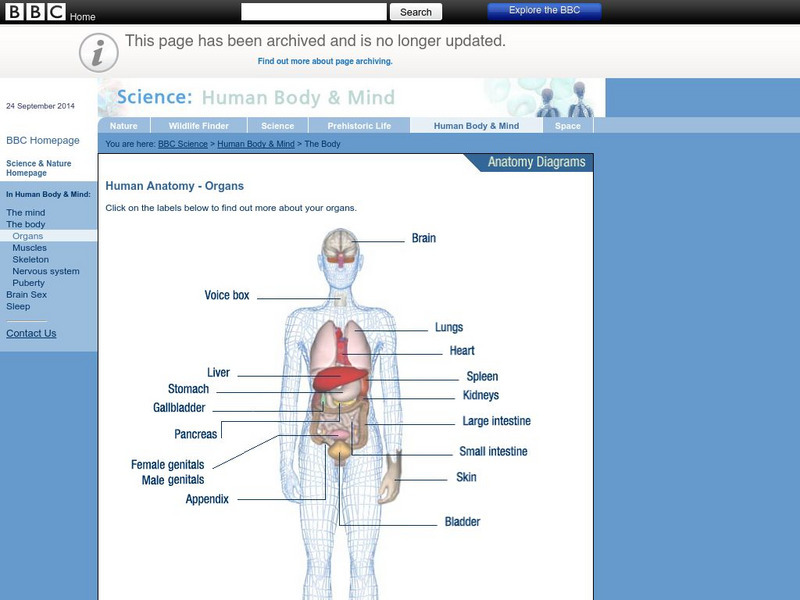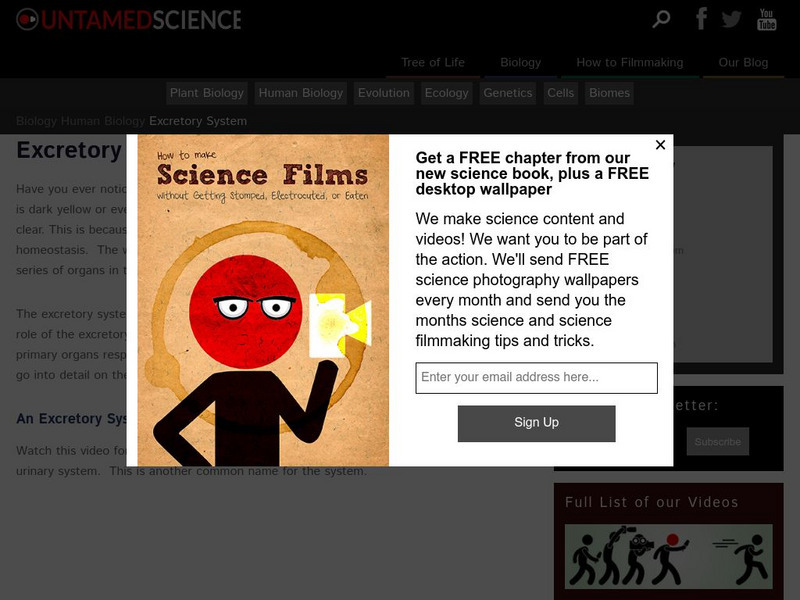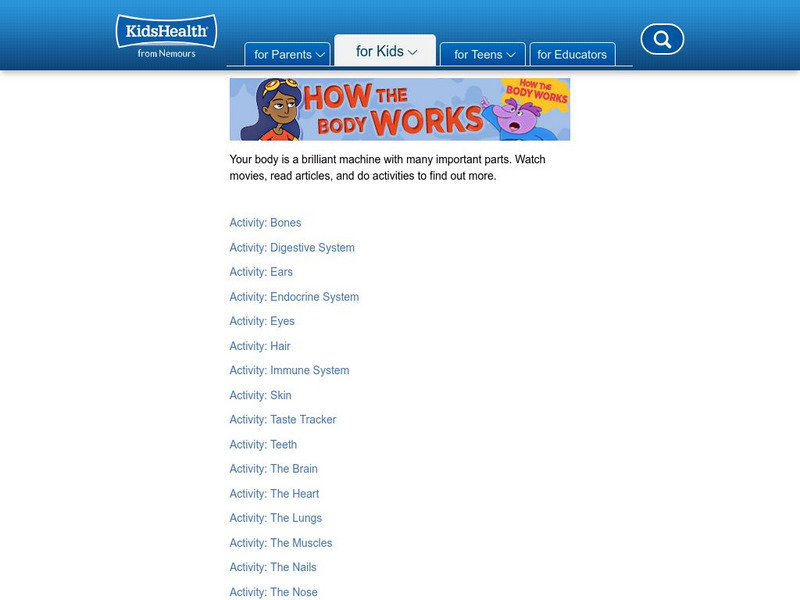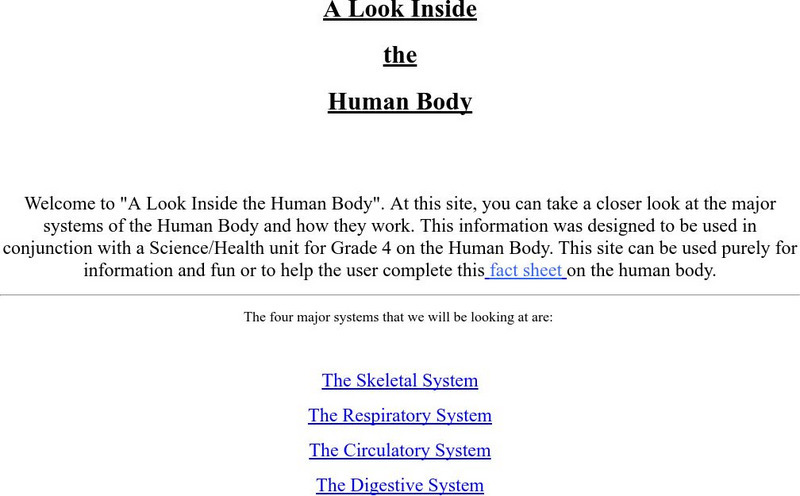Curated OER
Chromosomes
Students explore genetics, chromosomes and DNA. In this genetics lesson students design a chromosome and identify a family tree through genetics.
Curated OER
The United Nations
Students are introduced to the role of the United Nations. Using the internet, they research its history and its influence on politics and peace. In groups, they create a timeline of significant United Nations conventions since World...
Curated OER
Science: Entomology in Action
Students discover how coroners use insect life cycles to estimate the time of death in cases. they describe how forensic entomologists combine environmental factors with insect life cycles to note the changes. Students examine an...
Curated OER
Mathematics In You
Young scholars construct ratios using the hand as data. They use examples of cortical and trabecular bone found in the long bones to measure circumference, diameter, length, and weight of long bones. They perform computations using...
Curated OER
Critter Museum
Students act as directors of a new science museum where they have decided to set up a display of animals without backbones that are found in the area. To organize their display, they need to sort and classify a collection of animals and...
Curated OER
Cell Repair and Cell Cycle
Seventh graders explore the cell cycle. They view pictures of different stages of mitosis and explain why cells reproduce. They identify the five phases of mitosis: interphase, prophase, metaphase, anaphase, and telophase.
Curated OER
Discovering the Structure of the Atom
Students investigate atomic and nuclear structure of matter by researching historical atomic theories. Students examine Rutherford's studies and discover that many scientific conclusions change over time as new data is collected.
Curated OER
Tree Study
Students measure the lengths of provided leafs to the nearest millimeter. Students identify trends in the data as well as sourced of inaccuracy and formulate additional questions that could be investigated to enhance their understanding.
Curated OER
The Cell Cycle and Cancer
Young scholars compare and contrast the cell cycle of frog eggs, normal cells, and cancer cells. They watch a video about early development of the frog embryo, generate a hypothesis in small groups, and listen to a teacher-led lecture. ...
Curated OER
Pulse
Students determine a baseline pulse rate then chart the changes in rate with exercise. They describe the changes and develop a rationale for their observations. The task assesses students' abilities to make simple observations, determine...
CK-12 Foundation
Ck 12: Episd: Organization of the Human Body
[Free Registration/Login may be required to access all resource tools.] From basic cells to tissue to organ systems, identify and understand the structures and functions of the human body's organization.
National Cancer Institute at the National Institutes of Health
Seer Training Modules: Introduction to the Human Body
Self-guided learning activity where students learn about the functions, processes, and anatomy of the human body. There is a short quiz at the end of the lesson to check for understanding.
BBC
Bbc: Human Anatomy: Organs
Explore the anatomy of the human body. Click on an organ or other body part to read more about its structure and function, and then try out an interactive activity for that organ.
CK-12 Foundation
Ck 12: Life Science: Organization of the Human Body
[Free Registration/Login may be required to access all resource tools.] Cells, like these nerve cells, do not work in isolation. To send orders from your brain to your legs, for example, signals pass through many nerve cells. These cells...
Khan Academy
Khan Academy: Tissues, Organs, & Organ Systems
Describes the main tissue types and organ systems of the body and how they function together.
OpenStax
Open Stax: Functions of Human Life
The different organ systems each have different functions and therefore unique roles to perform in physiology. These many functions can be summarized in terms of a few that we might consider definitive of human life. Learn here about the...
Sophia Learning
Sophia: Organ Systems
A video lesson explaining the structure and function of the human body's major organ systems. [5:58]
Untamed Science
Untamed Science: Biology: Human Biology: Excretory System
Explore how the human body rids itself of wastes with the function of the kidneys.
Curated OER
Kids Health: A How the Body Works
This resource provides complete, mini-learning modules about different aspects of the human body. Click on the eyeball to focus your search.
Alabama Learning Exchange
Alex: "A Body Is a Terrible Thing to Waste"
Students will explain that the human body has different organ systems with different roles. Also, they will discover and illustrate the organelles that each system contains. In addition, students will describe the function of each...
Untamed Science
Untamed Science: Biology: Human Biology: Skeletal System
Make learning about the human skeletal system fun with full-color diagrams. Read about the structure and function of the body's 206 bones.
ClassFlow
Class Flow: Human Organisms (Vote)
[Free Registration/Login Required] This flipchart is a series of Activote questions covering human anatomy and the function of some human organs.
Other
A Look Inside: Human Body
Learn how our body works at this personal site from a fourth grade teacher. Colorful graphics and lots of fun facts.
Biology Corner
Biology Corner: Anatomy: Urinary System: Structure of the Nephron
Students read text and color leach labeled part of the nephron in the human kidney to understand the structure and function of the kidney. This is a ready-to-use teacher resource for biology review.





